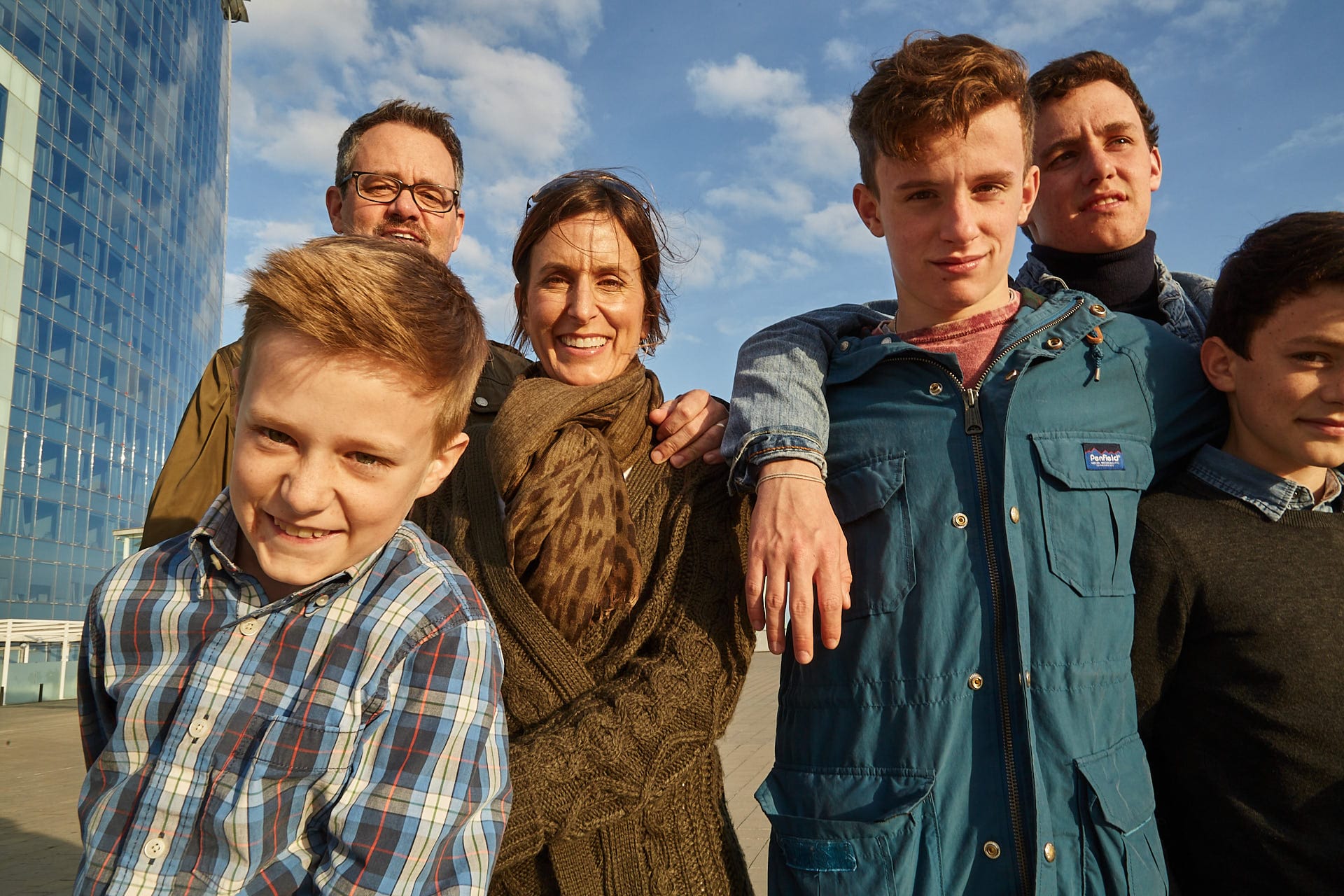
Retratos Familiares:
7 Claves Potentes para Crear Legado y Autenticidad
En una época en la que cada instante queda atrapado en el móvil, los retratos familiares premium recuperan su valor como relatos visuales con peso emocional. Las familias ya no buscan sólo una imagen bonita, buscan una pieza que refleje quiénes son, qué vínculo comparten y cómo quieren que los recuerden. Un retrato íntimo de familia bien concebido se convierte en puente hacia el futuro, y la fotografía emocional de retrato familiar deja de ser un lujo estético para ser una inversión en memoria, identidad y legado. Es un tema actual porque vivimos en un mundo acelerado donde lo efímero prevalece, y devolverle al retrato su poder narrativo cobra especial sentido.
Capturar la esencia auténtica de la familia
Para que un retrato sea verdaderamente significativo, debe ir más allá del mero encuadre o la pose perfecta. Debe captar la identidad, la dinámica y la emoción que hacen única a cada familia. Cuando trabajas con una familia, el reto principal es lograr que los miembros se sientan libres, relajados y conectados entre sí. Ese estado produce fotos que no sólo se ven bien sino que se sienten reales. Por ejemplo, un análisis internacional apuntaba que “las fotos familiares más memorables son aquellas donde los individuos se sienten libres de expresarse y no forzados por la cámara. Esto tiene muchos beneficios, algunos de ellos un aumento de la autoestima y valor personal”. The Guardian – The secret of a great family photo.
En España, podemos ver cómo este enfoque se reafirma cuando se afirma que “la autenticidad en la sesión es más valiosa que la perfección estética”. Julio Bárcena – representar o reconocer En la práctica, esto significa que en la sesión de retrato íntimo de familia priorizas movimientos naturales, momentos de interacción real (juegos, abrazos, miradas espontáneas) e incluyes tiempo para que la cámara capture sin intervenir demasiado. El resultado es un retrato que comunica, no sólo decora.
“Una fotografía familiar auténtica no se toma: se construye con respeto, emoción y mirada sensible hacia quienes están frente a la cámara.” — Julio Bárcena
Construir un legado visual que perdure
Un retrato que aspira a perdurar se construye pensando en la durabilidad, la narrativa y la relevancia futura. Los retratos familiares premium no deberían verse afectados por modas pasajeras: tienen que mirar también hacia mañana. Desde la técnica (luz, composición, procesado) hasta la emoción (la mirada, el vínculo, el momento) todo debe estar alineado hacia el futuro. Un artículo de prestigio internacional afirmaba que “los retratos familiares tienen el poder de documentar emociones y relaciones que perduran en el tiempo”. National Geographic – Photography section.
Al mismo tiempo, en España se recalca que invertir en retratos de alta calidad garantiza que la memoria visual de la familia perdure durante generaciones. Aplicado al trabajo de retrato familiar, esto implica una planificación consciente: escoger un lugar significativo, vestir desde la identidad, proponer dinámicas que reflejen la historia familiar y entregar un producto que puedan mirar los hijos, los nietos y más allá sin que la imagen pierda fuerza.
Mantener la autenticidad frente al reto del mundo visual moderno
En la era de los filtros, de las redes sociales y de imágenes producidas en masa, la autenticidad se ha convertido en un factor diferenciador. Un retrato familiar premium debe reflejar a quienes lo protagonizan, no un ideal artificial. Respetar la individualidad de cada persona, permitir que actúe sin guiones rígidos, y capturar emociones reales (risa, complicidad, ternura) marca la diferencia. Una investigación internacional señalaba que “las mejores imágenes familiares respetan las diferencias individuales y la dinámica natural”. The New York Times – Family photography article. Esto significa que como fotógrafo te conviertes en un facilitador: creas el ambiente, los guías suavemente y permites que emerja lo auténtico. Al final, la fotografía emocional de retrato familiar no es solo estética, sino una herramienta de conexión, memoria y presencia.
Conclusión
Los retratos familiares premium son mucho más que imágenes: son legados visuales construidos con intención. Capturar la esencia auténtica de la familia, crear un archivo que perdure en el tiempo y mantener la autenticidad frente a la saturación visual moderna convierte una sesión en un acto significativo. Apostar por un retrato íntimo de familia y por la fotografía emocional de retrato familiar es ofrecer algo que trasciende generaciones: un recuerdo con profundidad, identidad y valor perdurable.
